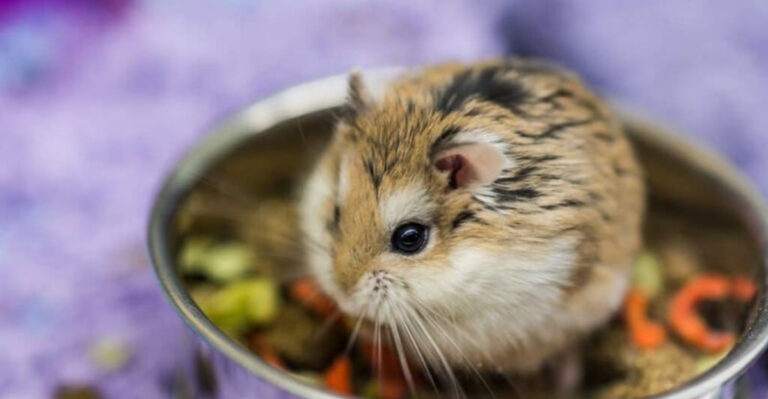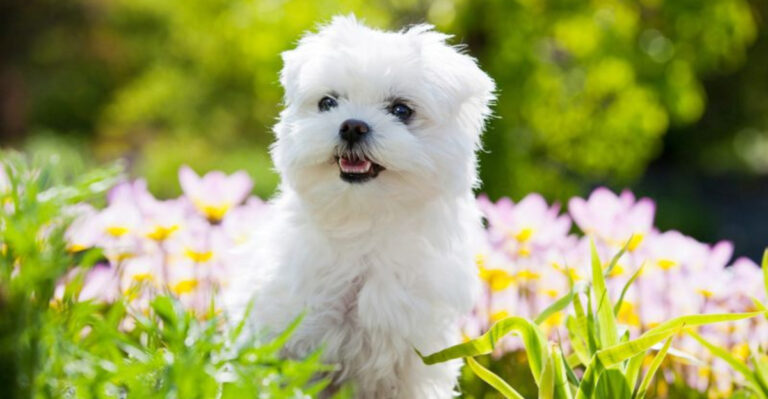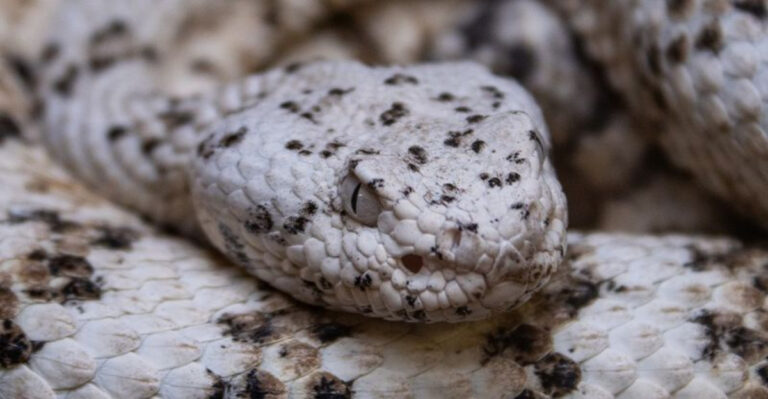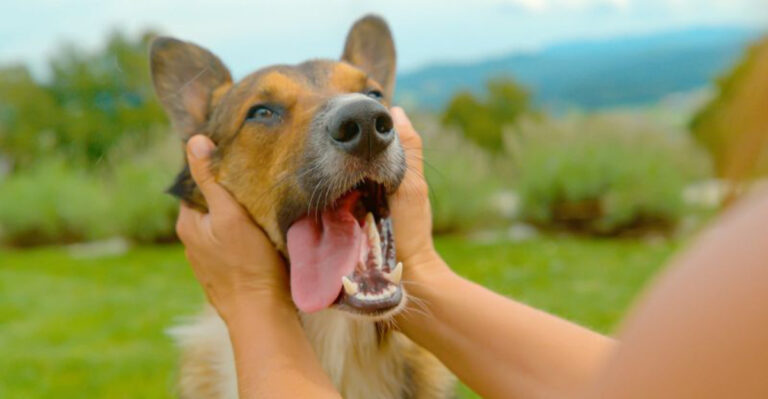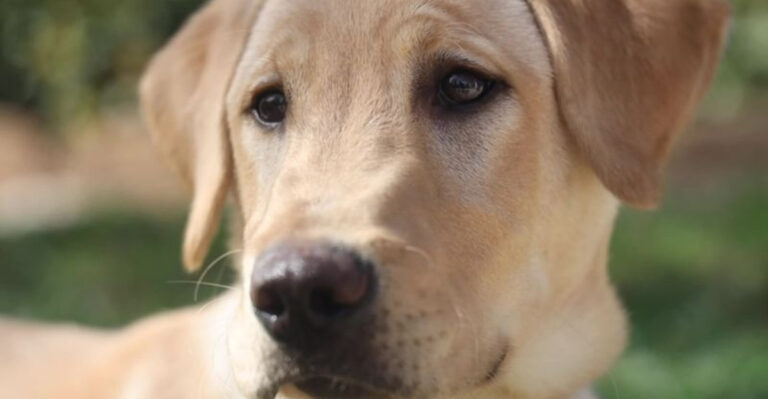17 Ways Cats Love Quietly, But Deeply
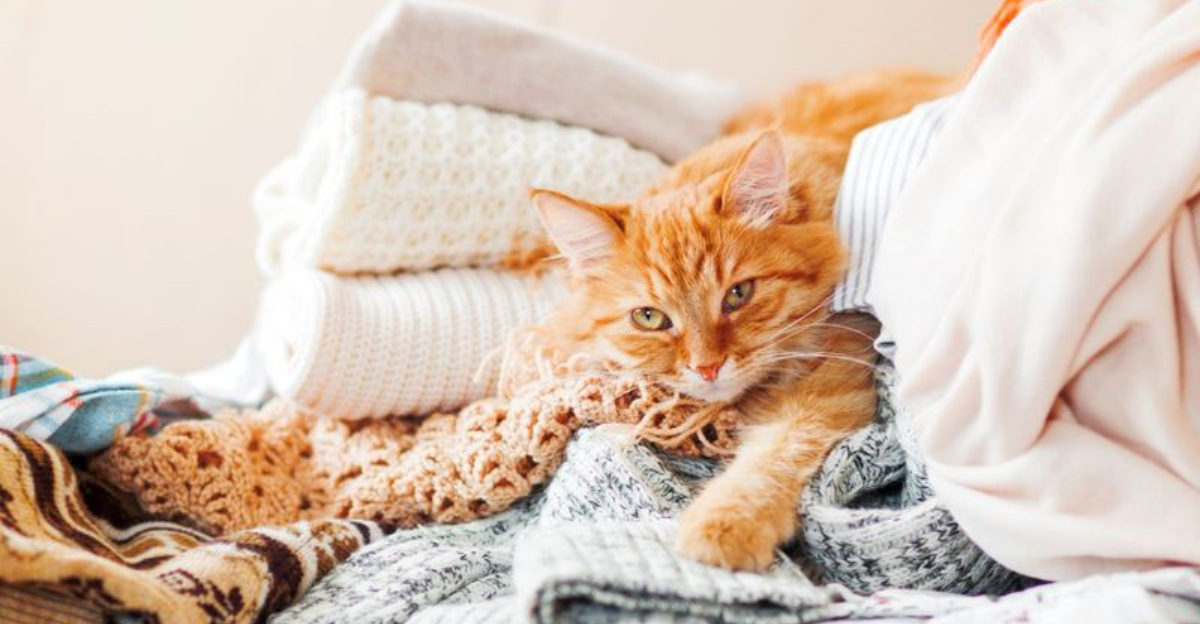
Cats may not always show their love with big gestures, but their affection runs deeply in subtle, quiet ways.
While they’re known for their independence, they have a unique ability to form deep bonds with their humans, often expressing this love in ways that are easy to overlook.
From gentle chirping to quietly watching you, these little moments reveal just how much your cat cares. Let’s explore 17 ways cats show their love — quietly, but profoundly.
1. Slow Blinks – The Kitty Kiss
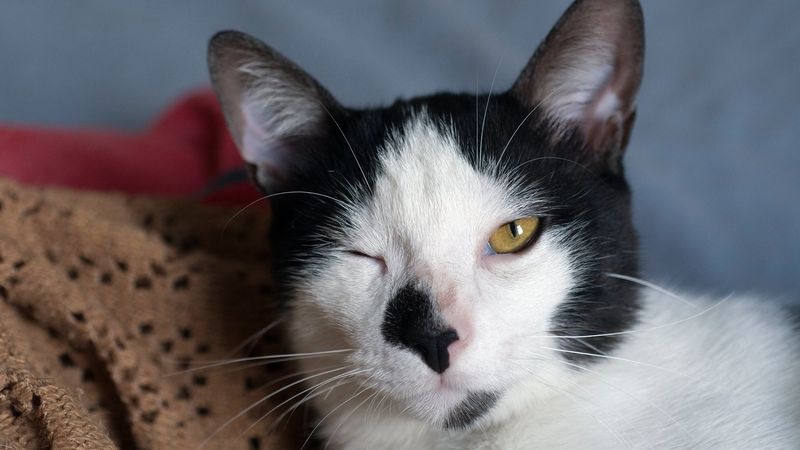
Ever caught your cat staring at you, then slowly closing and opening their eyes? This isn’t random behavior – it’s actually a cat’s version of blowing you a kiss! When cats feel safe and content around someone, they’ll offer this gesture of trust.
In the wild, closing eyes means vulnerability. By deliberately blinking slowly at you, your cat is essentially saying, “I feel so secure with you that I can let my guard down completely.”
Try returning this gesture when your cat offers it. Slowly blink back and you’ll be speaking fluent feline, engaging in a beautiful non-verbal conversation of mutual affection and trust.
2. Bringing You “Gifts”
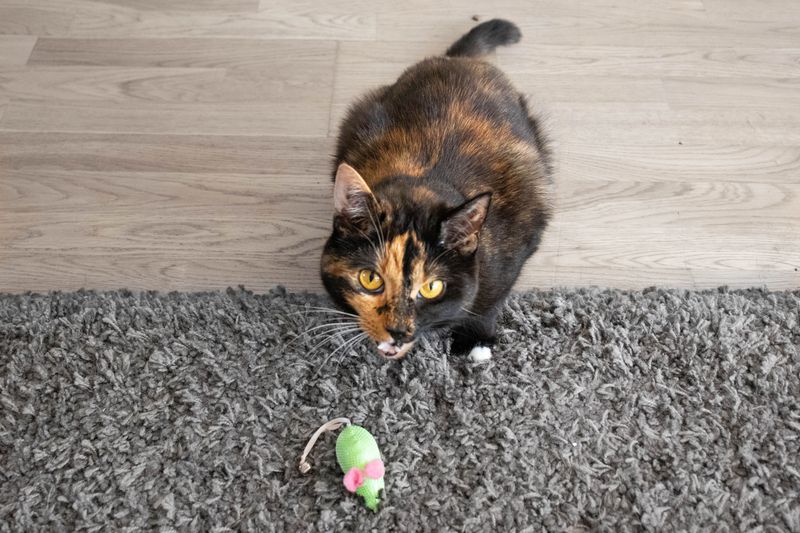
Finding a dead mouse or mangled toy on your doorstep might not seem like love, but in cat language, it’s a heartfelt offering. Cats are natural hunters who instinctively provide for their family members who can’t hunt – namely, you!
When your cat drops these treasures at your feet, they’re sharing their hunting success and trying to feed you. It’s their way of contributing to the household and showing they consider you part of their family unit.
Rather than scolding this behavior, acknowledge their generosity with gentle praise. Your cat is simply showing you they care enough to share their most valuable possessions.
3. Kneading Your Lap
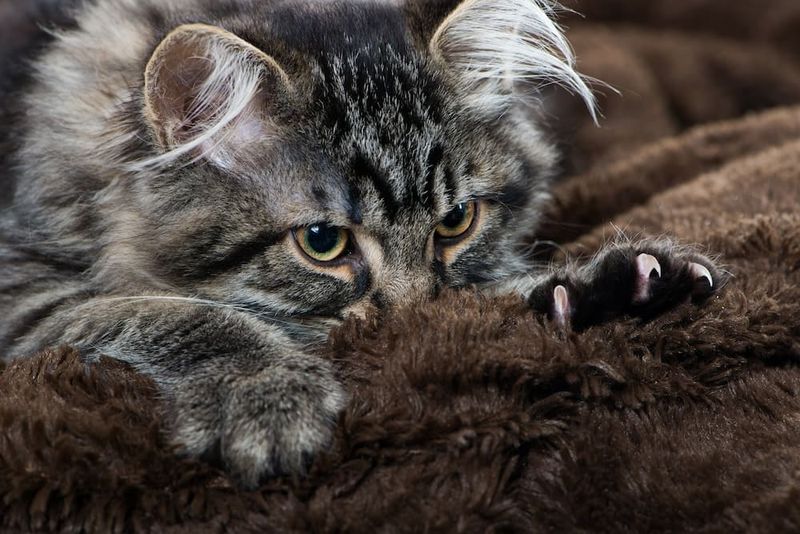
Those rhythmic paw pushes against your lap might be slightly painful (especially with unclipped claws!), but they’re actually one of the most sincere forms of feline affection. This behavior begins in kittenhood when nursing kittens knead their mother’s belly to stimulate milk flow.
When your adult cat kneads you, they’re regressing to this comforting kittenhood behavior. It indicates they feel completely safe and content in your presence – essentially treating you as their mother figure.
The harder and longer they knead, the happier they typically are. Consider it your cat’s way of giving you an enthusiastic massage while saying, “You make me feel as safe as my mama did.”
4. Following You To The Bathroom
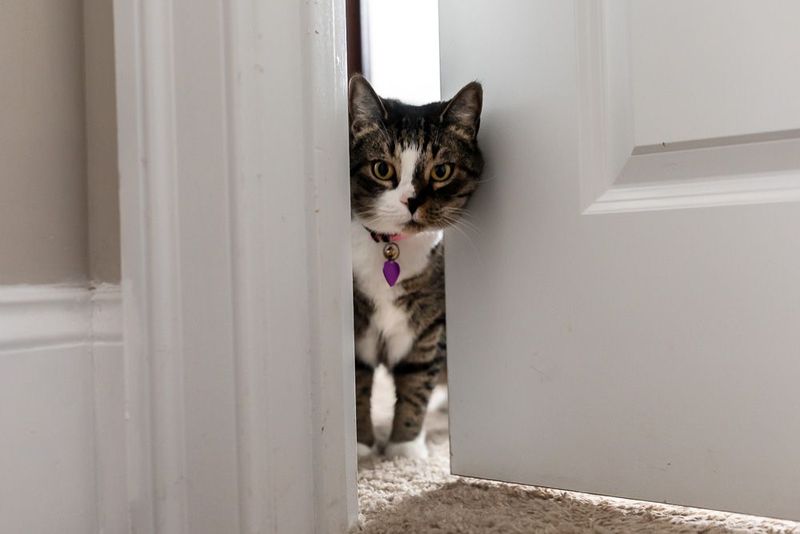
Your feline shadow’s bathroom-stalking habits might seem invasive, but this peculiar behavior actually stems from affection and protective instincts. Cats recognize that bathroom time makes humans vulnerable – just as they feel exposed when using their litter boxes.
By accompanying you, they’re both guarding you during this vulnerable moment and demonstrating trust by sharing this private ritual. Many cats also appreciate the captive audience and guaranteed attention they receive in this small space.
Next time your cat squeezes through the barely-open bathroom door, remember they’re not being nosy – they’re keeping protective watch over a beloved family member during what they perceive as a potentially vulnerable moment.
5. Tail Position Tells All
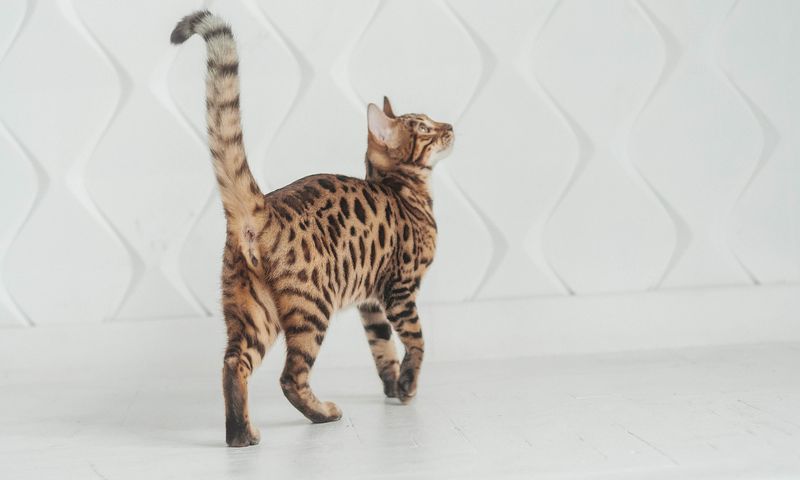
A cat’s tail serves as an emotional barometer, with the upright question-mark shape being their ultimate expression of happiness and affection. When your cat approaches with tail held high and slightly curved at the tip, they’re essentially waving a flag of friendship and contentment.
This greeting is reserved for their favorite people and signals both recognition and delight at your presence. The gentle quiver or vibration sometimes seen at the tail tip indicates heightened excitement about seeing you.
Unlike many other feline body language signals which can be ambiguous, this upright tail position is one of the clearest indicators that your cat is genuinely happy to see you and feels secure in your company.
6. Grooming You – The Ultimate Compliment
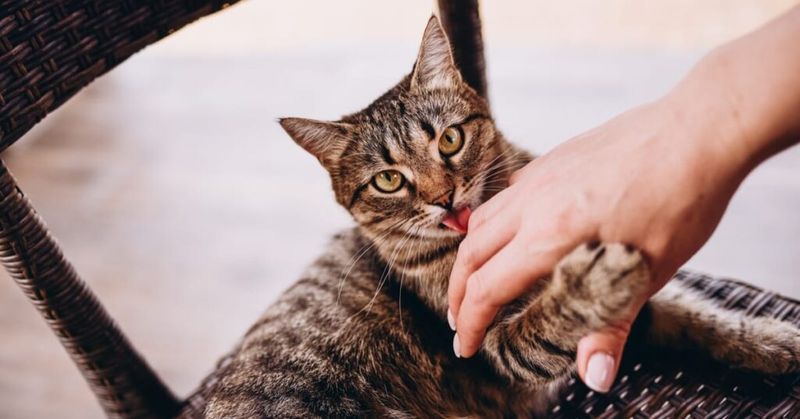
Those rough-tongued licks on your hand or face might feel like sandpaper, but they represent one of the highest forms of feline affection. Mutual grooming in cat colonies is reserved for close family members and trusted companions – it’s not a privilege cats extend to just anyone.
When your cat licks you, they’re essentially declaring you part of their inner circle. They’re also helping to spread their scent on you, marking you as their trusted family member in the process.
Some cats even attempt to groom their humans’ hair, which can be uncomfortable but is deeply meaningful in cat language. Your feline friend is saying, “You’re mine, and I care enough about you to help keep you clean.”
7. Purring Through Pain
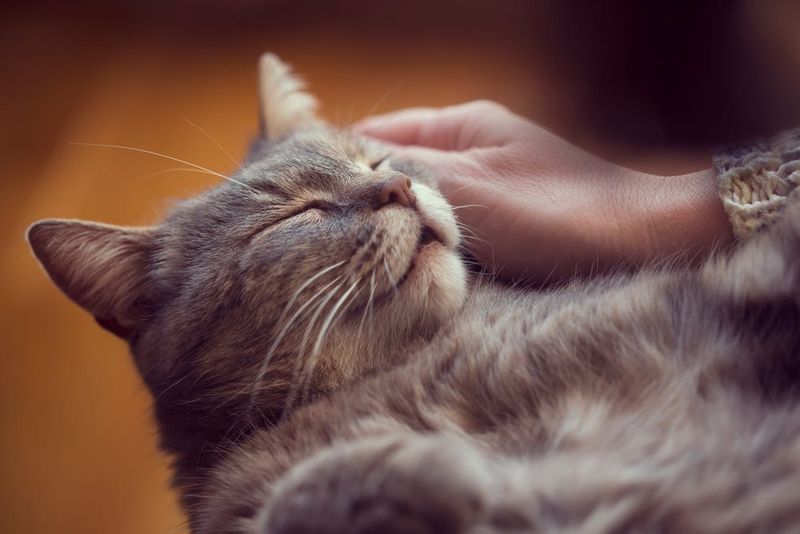
Most cat owners associate purring with contentment, but cats actually purr for multiple reasons – including when they’re in pain or distress. When your cat purrs while curled up in your lap during illness or after an injury, they’re demonstrating profound trust in your ability to provide comfort.
Cats are incredibly vulnerable when unwell, and in the wild, showing weakness can be dangerous. By seeking you out specifically when feeling poorly, your cat is paying you the ultimate compliment – trusting you with their life and wellbeing.
The healing frequencies in a cat’s purr (between 25-150 Hz) can actually promote tissue regeneration and bone healing. Your presence helps activate this self-soothing mechanism, creating a powerful healing bond between you.
8. Showing You Their Belly
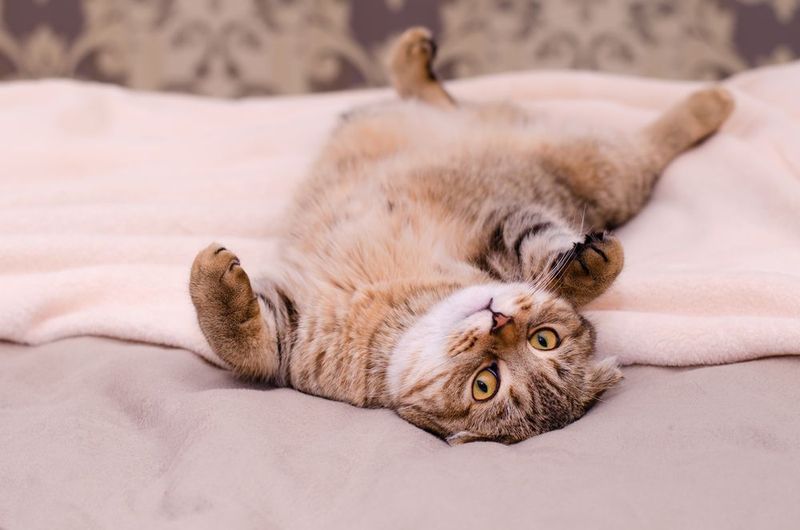
A cat’s exposed belly is their most vulnerable area, housing vital organs with minimal protection. When your cat flops over and shows you this sensitive region, they’re displaying extraordinary trust in your intentions and character.
Contrary to popular belief, this isn’t always an invitation for belly rubs (though some cats do enjoy them). Rather, it’s a declaration of complete security in your presence – your cat is literally saying, “I trust you not to hurt me when I’m completely defenseless.”
Whether your particular cat welcomes belly touches or prefers you admire from afar, recognize this position as one of the most meaningful compliments your feline friend can offer. They’re demonstrating a level of trust they reserve for only their most trusted companions.
9. Headbutts And Cheek Rubs
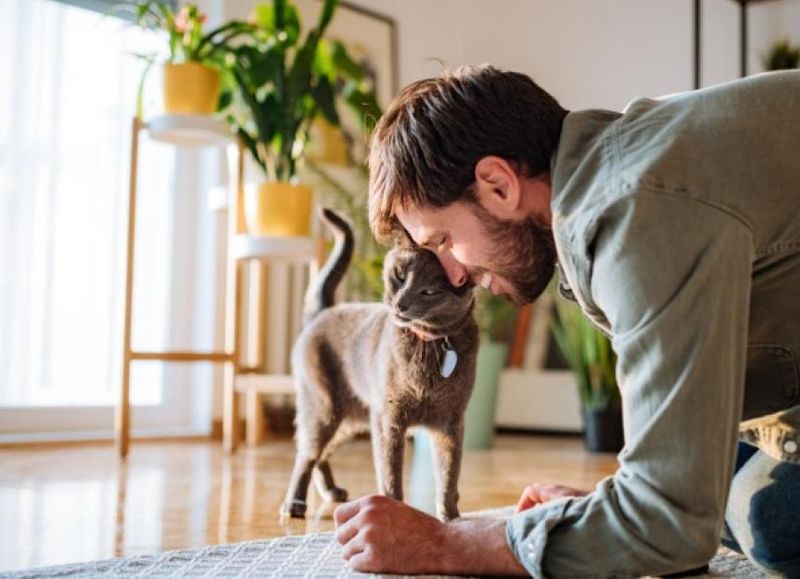
Those affectionate head bumps and cheek rubs against your leg, hand, or face are more than just cute gestures – they’re a meaningful form of scent-marking. Cats have special scent glands located on their cheeks, chins, and foreheads that release pheromones unique to them.
When your cat rubs these areas against you, they’re depositing their personal scent signature on your skin. This behavior, called bunting, is essentially your cat labeling you as their safe person and trusted territory.
In multi-cat households, you might notice cats bunting against each other to create a unified colony scent. When they include you in this ritual, they’re declaring you an official member of their family group – a profound declaration of belonging and acceptance.
10. Chattering At Birds Through Windows
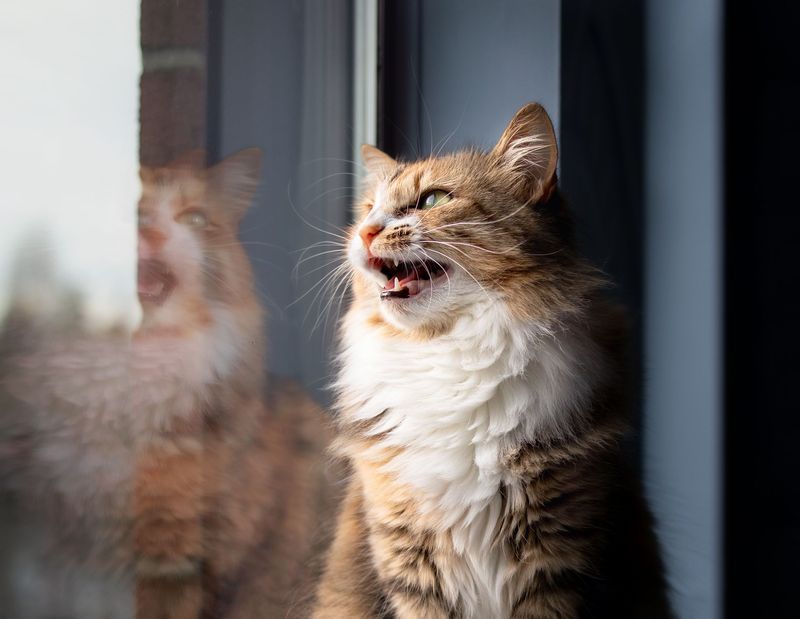
That distinctive chittering sound your cat makes while watching birds isn’t just predatory excitement – it’s actually your cat attempting to share their hunting interests with you. This behavior demonstrates they view you as a fellow hunter worthy of inclusion in their natural pursuits.
Some ethologists believe this chattering mimics the killing bite cats use in hunting, while others suggest it’s a sign of frustration at being unable to reach prey. Either way, when your cat makes these sounds while seated beside you at the window, they’re sharing an important part of their instinctual life.
By engaging with your cat during these moments, perhaps by commenting on the birds too, you’re participating in a shared activity that strengthens your bond across the species divide.
11. Sleeping On Your Clothes
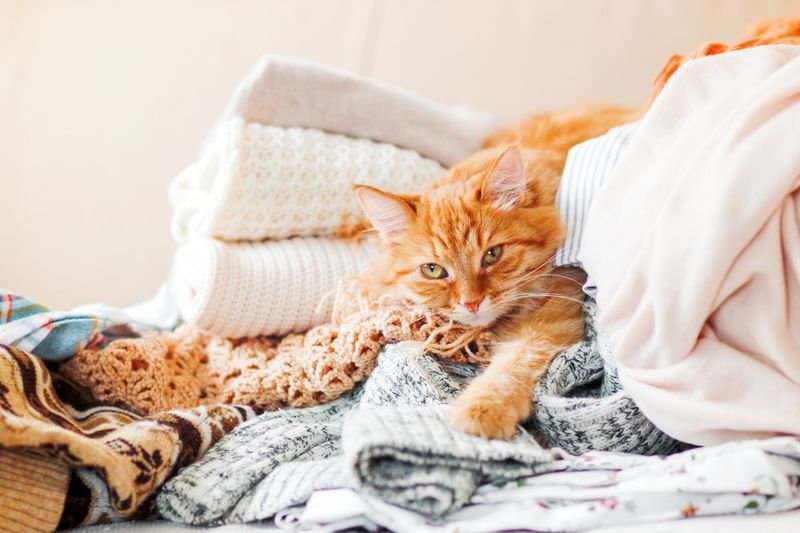
Finding your cat curled up on your laundry pile isn’t just because they’re seeking comfort – they’re specifically choosing items saturated with your unique scent. Your personal fragrance provides them security and emotional reassurance, especially when you’re away from home.
This behavior is particularly common among cats with separation anxiety or those deeply bonded to their humans. By surrounding themselves with your smell, they’re creating a sense of your protective presence even in your physical absence.
Next time you find your freshly laundered black shirt covered in cat hair, remember it’s a testament to how much comfort your cat finds in your scent. They’re essentially wrapping themselves in the olfactory equivalent of a hug from you.
12. Greeting You At The Door
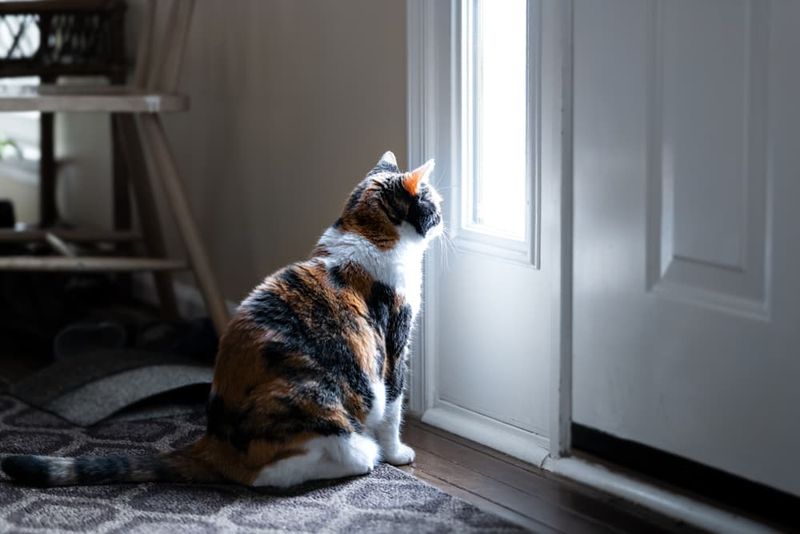
Unlike dogs who might greet everyone enthusiastically, cats typically reserve their welcome home rituals for their special humans. When your cat runs to the door upon hearing your key in the lock, they’re demonstrating genuine excitement at your return.
This behavior is especially meaningful considering cats’ independent nature. They aren’t socially obligated to acknowledge arrivals as pack animals might be – they choose to greet you specifically because your presence matters to them.
The specific greeting ritual – whether running to the door, meowing conversationally, or performing figure-eight weaves between your legs – is your cat’s personal welcome home ceremony. It’s their way of saying, “I noticed you were gone, and I’m genuinely happy you’ve returned to me.”
13. Choosing Your Lap Over Others
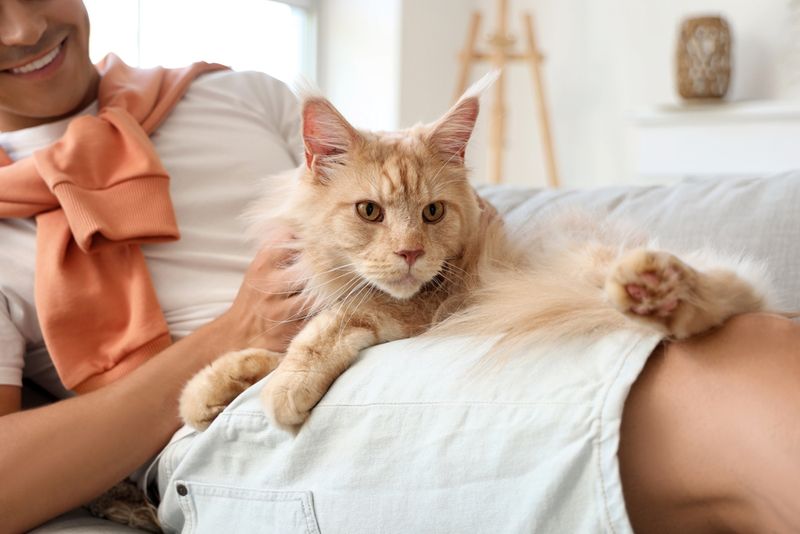
Cats are notoriously selective about whose lap they grace with their presence. When your cat consistently chooses you as their preferred human cushion – especially when other options are available – they’re making a clear statement about their trust and preference for you.
This selective behavior demonstrates that cats form genuine attachments to specific people based on complex factors including how you interact with them, your scent, your energy level, and the security they feel in your presence. Many cats will maintain this preference even when other people offer treats or toys.
Your lap cat’s choice isn’t random – it’s a carefully considered decision that you’ve somehow earned through your relationship. They’re essentially saying, “Of all the humans available, you’re the one who makes me feel safest and most loved.”
14. Synchronized Sleeping Schedules
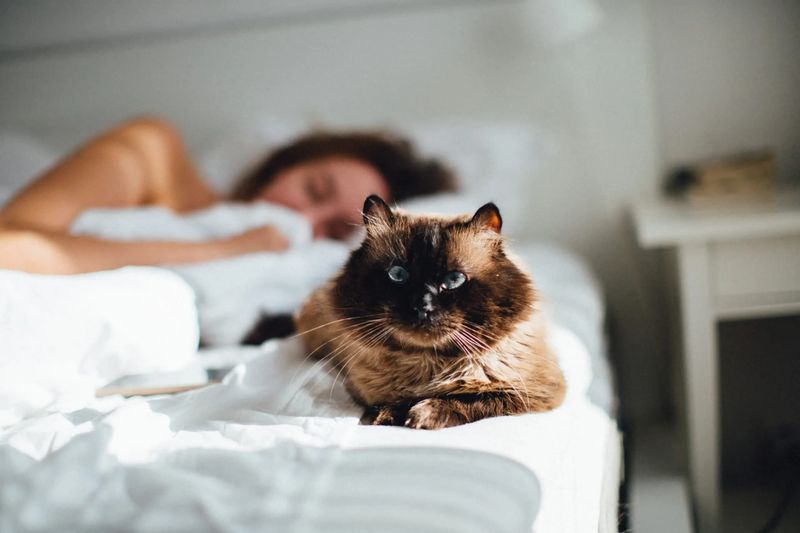
Have you noticed your cat gradually adjusting their sleep patterns to match yours? This subtle alignment is actually a meaningful social accommodation. Cats are naturally crepuscular (most active at dawn and dusk), so adjusting their biological rhythms represents a significant adaptation.
When your cat begins waking when you wake and settling down when you go to bed, they’re prioritizing time with you over their natural instincts. This adjustment allows them to maximize interaction with their favorite human and demonstrates they value your companionship enough to shift their natural behaviors.
Some cats even develop morning rituals aligned with their humans’ schedules – appearing precisely when alarm clocks ring or coffee machines brew. These synchronized routines represent a deliberate choice to structure their day around quality time with you.
15. Watching Over You When Sick
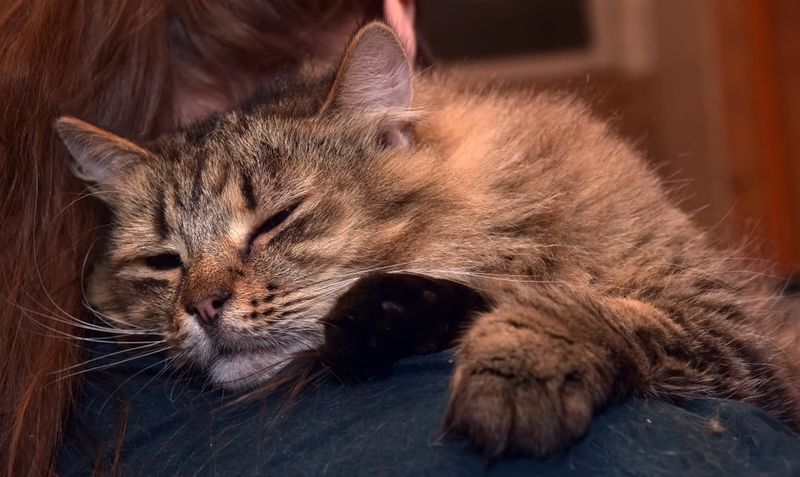
Many cat owners report their normally independent felines become attentive nurses during human illness. This behavior demonstrates remarkable empathy and awareness of your physical state. Cats often detect subtle changes in your body temperature, behavior, and even scent when you’re unwell.
A cat who normally maintains their distance might suddenly insist on curling up beside you during illness, sometimes positioning themselves near the specific area that hurts. Some cats become notably more gentle and attentive, checking on their humans frequently with soft paw touches or quiet observational visits.
This nursing behavior reveals your cat’s capacity for compassion and their genuine concern for your wellbeing. Their healing presence – complete with therapeutic purring – shows they recognize your vulnerability and want to provide comfort during difficult times.
16. Chirping Or Chattering At You
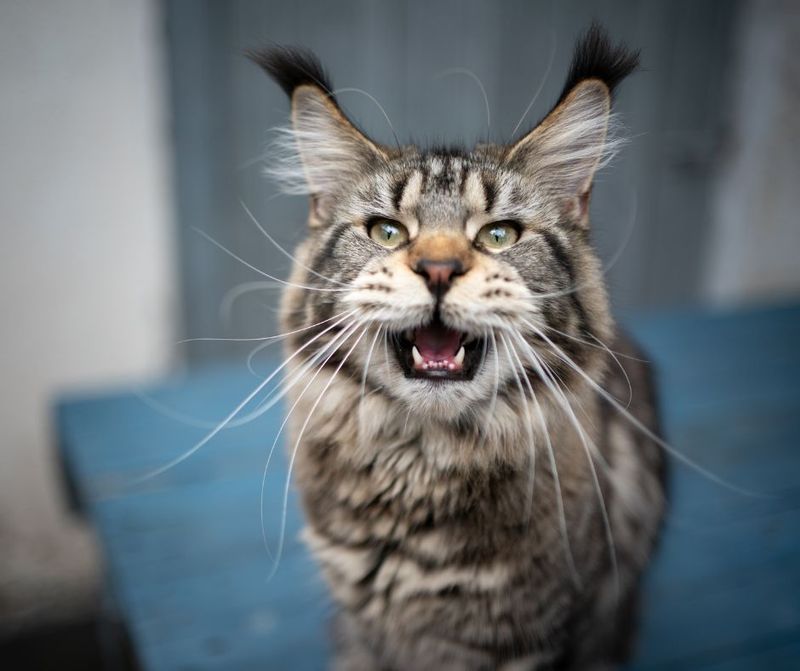
When your cat chirps or chatters at you, it’s usually a sign that they’re excited and engaged. This sound often occurs when they’re observing something, like birds outside the window or even when they see you after a long day.
While it might sound like a playful or hunting noise, it’s also their way of communicating with you, expressing that they are emotionally connected. This chirping or chattering shows that your presence brings them joy and stimulates their curiosity, making it a special sign of affection.
17. Watching You Quietly
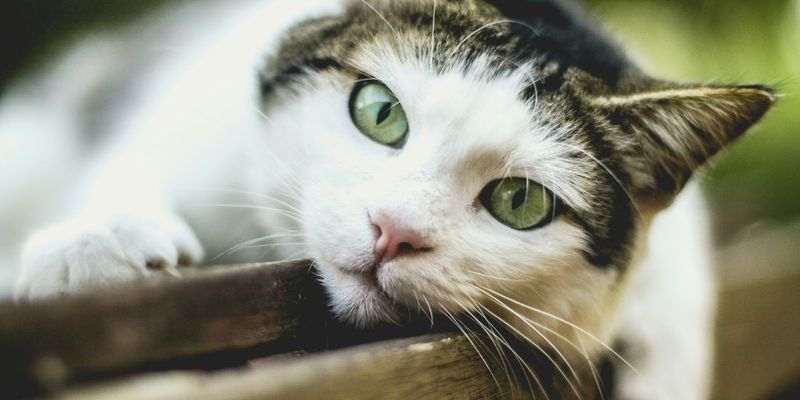
If your cat sits quietly and watches you from a distance, it’s more than just a moment of curiosity. Cats are known for being independent, but when they choose to sit quietly and observe you, they’re showing a silent form of companionship.
This subtle behavior is their way of bonding with you, letting you know that they enjoy your presence without needing constant physical interaction. It’s a deep and thoughtful form of affection that speaks volumes about their trust and connection to you.

